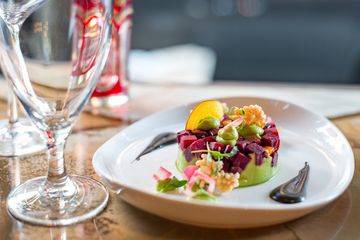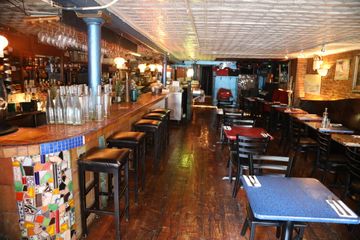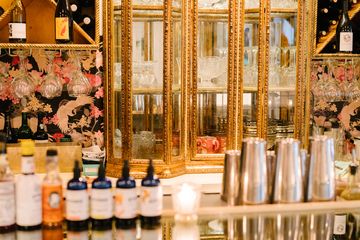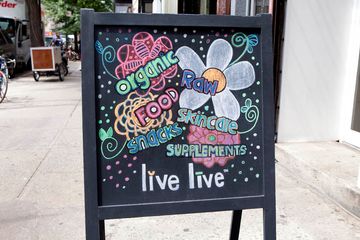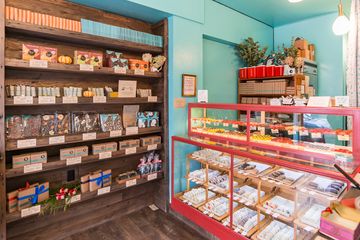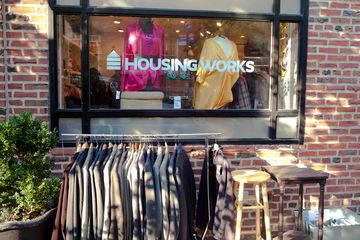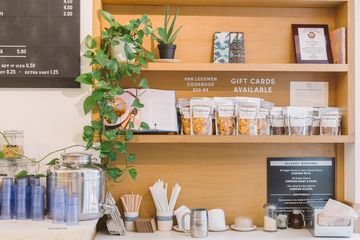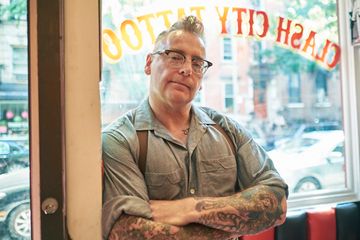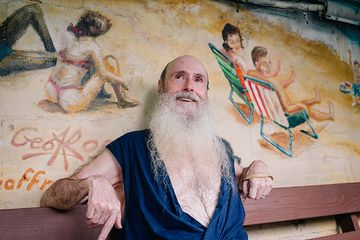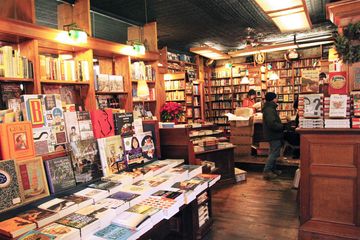When I walked into Clash City Tattoos, Baz was hunched over his station, completing a tattoo sketch. The space popped with bold red walls, brightly colored ink bottles, and large tattoo designs. One could not miss the almost human-sized bass in the corner if they tried – “some friends just like to come in and play the bass, ” Baz told me as he shrugged his shoulders. Music influences much more of this tattoo shop’s ideology than I could have anticipated. Named after Baz’s favorite band, the space encapsulates the idea that just as The Clash could play such a range of genres, so too could Baz’s tattoos encompass all kinds of people. “Lawyers and rockstars alike listen to The Clash, ” he elaborated, “and I want my tattoos to unite my customers, just as a single beat can unite different listeners. ”Baz first visited the United States in 1991 while working on a cruise ship and was immediately drawn to everything American – particularly the music, cars, and TV shows. Working in a comic bookstore, he was captivated by posters for Iron Man, Planet of the Apes, and an assortment of cartoon superheroes. He claimed it was the “solid black lines, bold colors, and clear forms” of comic art that lent it a unique and sophisticated artistic quality. Moreover, his mother’s admiration for surrealist painter Salvador Dali offered him an early penchant for the freedom of abstract art anchored in bold lines – the ideal forms for tattoo art. Clients coming into Clash City Tattoos have usually heard about the store and like to visit with an idea of what they want inked. While Baz and his team are exceptionally friendly, asserting that their store “is a place that you won’t have to be afraid to walk into, ” they are also honest with clients about which designs work and which simply do not. Equipped with a creative bent, the team mostly designs custom tattoos using clients’ ideas. However, when someone comes in asking for a "full bible verse on their little finger" or an arrangement of “a heart with four names in it, two wings on either side, and a crown on top in the size of a fist, ” the team knows when to say “this isn’t working; let’s fine-tune. ” What is more, they pay exceptionally close attention to each client’s pain tolerance. While some can manage three hours of inking in a go, others (like Baz’s wife, he laughs) only last ten minutes. I asked Baz about the most challenging tattoo he was tasked with designing. When the bass player of globally-renowned British band Muse, Chris, asked for a tattoo of his son’s name, Buster, in Disney font, Baz started thinking of ways to make the design more complex and unique. A few days later, Chris and Baz were hanging out with a group of friends, when Chris recounted a story about Buster. The young boy was playing with his toys at home when he ran straight into the corner of an table and cut his forehead. But he continued with his play as usual until Chris’ wife noticed a large gash on his head and rushed him to the hospital. Buster was unfazed. The story inspired Baz to draw up the tattoo that now decorates Chris’ right forearm – a smirking cartoon kid with boxing gloves over the name “Buster” in striking black font. Chris loved it. Looking at Baz’s journey thus far, it is easy to see how he has settled into a characteristic set of themes and motifs. Through space backgrounds, gypsy girls, cartoon superheroes, and more, Baz eventually reached a signature design – “pin-up girls with stuff in their hair, ” as he amusedly called it. I was thrilled to see his gorgeous side profiles of girls with complex forms – ships, octopuses, and more – wrapped in the locks of their hair. Baz’s artistic genius spans a wide range of imagery, fixed into his defining black lines and bold forms.
